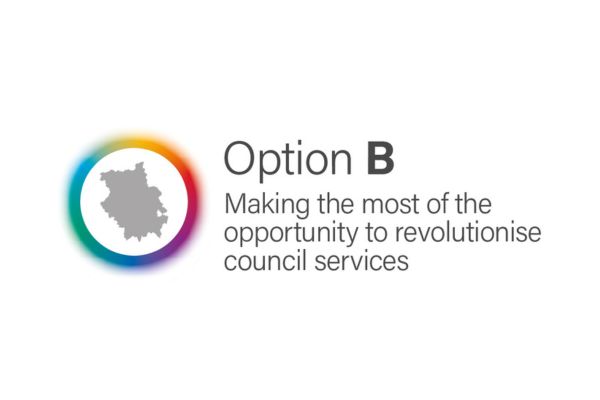The Elections Act 2022 introduced a requirement for voters to show photo ID before they can vote in person at a polling station.
You must show an acceptable form of photo ID to receive your ballot paper and cast your vote in the polling station.
- Voter ID statistics from recent elections are shown in the table at the bottom of the page.
If you have never registered to vote, have recently moved, or changed your name, you can register to vote online or by completing a paper application form. When you register to vote, you will be asked if you have photo ID.
If you do not have any of the acceptable forms of photo ID listed below, you can apply online or by post for a ‘voter authority certificate’. This is a free photo identification document issued for the specific purpose of allowing you to vote in the polling station.
You will not need photo ID if you vote by post or have appointed a proxy, although your proxy will need their own photo ID if they vote for you in a polling station.
The requirement to show photo ID in the polling station will apply at the following polls in Cambridge:
- UK Parliamentary General Election
- Cambridge City Council Elections
- Cambridgeshire County Council Elections
- Police and Crime Commissioner Election
- Combined Authority Mayor Election
- Local or national referenda (if held)
- Member of Parliament recall petition (if held)
Read about accessibility at elections to learn what support you can get in polling stations and to vote by post or proxy.
Photo ID
You can use the following photo ID to vote in person. If your ID has expired, you can still use it if the photograph remains a good likeness of you.
Photo ID that will be accepted in polling stations:
- a passport issued by the UK, any of the Channel Islands, the Isle of Man, a British Overseas Territory, a state of the European Economic Area (EEA), or a Commonwealth Country
- a driving licence issued by the UK, any of the Channel Islands, the Isle of Man or and EEA state (this includes a provisional licence)
- a biometric immigration document
- an identity card bearing the Proof of Age Standards Scheme hologram (a PASS card)
- a Ministry of Defence Form 90 (Defence Identity Card)
- a Ministry of Defence Form 100 (HM Forces Veteran Card)
- a Blue Badge
- a national identity card issued by an EEA state
- an Older Person's Bus Pass funded by the UK Government
- a Disabled Person's Bus Pass funded by the UK Government
- a 60+ London Oyster Photocard funded by Transport for London
- a Freedom Pass
- a Scottish National Entitlement Card issued for the purpose of concessionary travel (including a 60+, disabled or under 22s bus pass)
- a 60 and Over Welsh Concessionary Travel Card
- a Disabled Person's Welsh Concessionary Travel Card
- a Senior SmartPass issued in Northern Ireland
- a Registered Blind SmartPass or Blind Persons SmartPass issued in Northern Ireland
- a War Disablement SmartPass issued in Northern Ireland
- a 60+ SmartPass issued in Northern Ireland
- a Half Fare SmartPass issued in Northern Ireland
- an Electoral Identity Card issued in Northern Ireland
- a voter authority certificate
- an anonymous elector’s document
If you cannot provide acceptable photo ID, you will be advised to leave the polling station and to return with one of the acceptable forms of ID before a ballot paper can be issued to you. The decision of the Presiding Officer in the polling station will be final.
Expired documents will be accepted if the photograph on the document still resembles you.
You will not be required to show photo ID to hand deliver a postal vote to a polling station.
Photocopies of identification documents
Photocopies or copies of images on mobile phones or other electronic devices will not be accepted.
This is because photo-editing software could be used and therefore it could be subject to fraudulent alteration. You must take the original document to the polling station.
Different name on the electoral register and photo ID
If your name has changed (for example, through marriage or deed poll), you may be asked to provide additional supporting documents at the polling station, such as an original marriage or civil partnership certificate that provides evidence of the name change.
If the spelling of your name is different or an alternative spelling is present to the one on the electoral register, it will be at the discretion of the Presiding Officer at the polling station whether they will accept the form of ID or not.
Emergency proxy
If you have appointed a proxy or emergency proxy to vote on your behalf, they must bring their own photo ID to the polling station.
They don't need to bring photo ID of you (the elector they are voting on behalf of) they only need to bring their own photo ID.
If your proxy does not have an acceptable form of photo ID, they can apply for a free voter authority certificate.
The voter authority certificate
If you are registered to vote but don't hold one of the acceptable forms of photo ID listed above, you can apply for a voter authority certificate free of charge following verification of your identity.
The voter authority certificate can only be used for the purposes of voting in a polling station, it cannot be used as proof of age or identity for any other reason.
You can apply for a voter authority certificate in several ways:
- online at Apply for photo ID to vote (called a ‘Voter Authority Certificate’) - GOV.UK
- completing a paper application with a photo enclosed at Apply for a Voter Authority Certificate by post if you’re living in the UK - GOV.UK
The voter authority certificate is an A4, security marked paper document that will include:
- your full name
- your approved photograph
- date of issue
- unique identification number
- a recommended renewal date (10 years from date of issue)
Once verified by the Electoral Registration Officer, it is expected that the voter authority certificate will be printed within one to two working days and delivered by Royal Mail.
You can request to collect your voter authority certificate from our offices in Mandela House, but you will need to provide a reason for this, and it may be rejected.
If collection is agreed, you must collect the voter authority certificate in person, you cannot send anyone else to collect it.
Photograph requirements when applying for a voter authority certificate
When you apply for a voter authority certificate you must provide a suitable photograph either through the online application process or submitted with a paper application which meets the following requirements:
- a close-up photograph of your head and shoulders:
- without any other items or people in the background
- without any covering of the head, unless worn for religious beliefs or medical reasons
- in sharp focus and clear (not blurry)
- in colour and taken against a plain, light background
- free from redeye, shadows and not in the reflection of windows or mirrors
- resembles a true likeness without alteration
Your photo must show you:
- facing forwards
- with nothing covering your face
- looking straight at the camera
- with a plain facial expression
- with eyes open and visible (e.g., no sunglasses or being covered by hair)
If you are unable to meet the above criteria, you will be able to explain why, for example, a medical condition.
If you have not received your voter authority certificate
We advise that you contact the Elections Office on 01223 457048 or by e-mailing elections@cambridge.gov.uk if you have not received your voter authority certificate within 28 days of application where there are no scheduled elections due to take place in Cambridge.
Where an election is due to take place and you applied before the 5pm deadline, six working days before the election, you should contact the Elections office immediately so we can investigate and where appropriate issue you with a temporary voter authority certificate that you will only be able to use at the upcoming election.
The permanent voter authority certificate will be sent to you in due course.
Lost photo ID or certificate
If you have lost all forms of photo ID or the voter authority certificate ahead of the 5pm deadline six working days before an election and you don't have any of the other form of acceptable ID, you can reapply for a voter authority certificate.
If you have lost, destroyed, damaged, or had your ID stolen after the application deadline, there will be a provision for you to appoint an emergency proxy for polling day.
Poll cards
Poll cards will still be sent to every registered elector. They will list all acceptable forms of photo ID.
As at previous elections, you don't need your poll card with you when you vote, (unless you are registered as an anonymous elector) but it can help the poll clerks to find your entry in the register of electors.
The poll card cannot be used as your ID to vote, you must have one of the specified photo ID documents listed above.
Anonymous elector
If you are an anonymous elector voting in person at the polling station you will need to apply for an anonymous elector's document and present it at the polling station along with your anonymous elector poll card.
The anonymous elector's document will be the only form of identification that you will be able to provide and use at the polling station, so you will not be able to present any other form of ID, including the acceptable photo ones.
This is because as an anonymous elector your name does not appear on the electoral register and therefore no other form of photo ID would prove your identity and eligibility to have a ballot paper issued.
Anonymous electors will be required to reapply and renew their anonymous elector document each year, by providing a new photo as part of the application process for the annual declaration renewal.
The Electoral Registration Officer will also issue a replacement document if they renumber their electoral register (the anonymous applicant will not need to reapply in this scenario).
Further information
- Electoral Commission’s information booklet [PDF, 1.5MB]
- Electoral Commission website
- contact the Electoral Commission on 0800 3280280
Voter ID statistics
| Date of poll | 4 May 2023 | 2 May 2024 | 4 July 2024 | 1 May 2025 |
|---|---|---|---|---|
| Election | City council | City council, Police and crime commissioner | UK Parliament | Combined authority and county council |
| Eligible electorate | 89,574 | 88,528 | 70,315 | 86,551 |
| Polling station voters including proxies | 75,709 | 74,962 | 56,702 | 73,250 |
| Postal voters including postal proxies | 13,865 | 13,566 | 13,613 | 13,301 |
| Number of votes included in the count | 35,162 | 33,456 | 42,473 | 33,393 |
| Turnout | 39.3% | 37.8% | 60.4% | 38.58% |
| Polling station electors initially refused a ballot paper due to no or wrong ID | 302 (100%) | 150 (100%) | 120 (100%) | 198 (100%) |
| Number of polling station voters who returned and were able to vote | 176 (58.3%) | 89 (59.3%) | 87 (72.5%) | 141 (71.2%) |
| Number of voters who did not return, and so did not vote | 126 (41.7%) | 61 (40.7%) | 33 (27.5%) | 57 (28.8%) |



